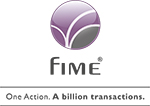Program
8.45
Registration
INTRODUCTION
Overview and Objectives
9.45
Introduction to Transport Payments South Asia, theme for 2020, workshop and working group discussions, aims and objectives for the two days, what delegates will take away from the event.
Abhijit Sengupta, Country Director, APSCA India
WORKSHOP
Understanding Requirement for Interoperability in India
10.00
The half-day workshop will explain the requirements for achieving interoperability of transport payments at local, regional and national levels, why this is about more than technology and standards, how developing a roadmap towards pay-as-you-go (PAYG) roaming is an efficient way to achieve interoperability, and what operational rules and procedures might be needed for NCMC to achieve the end goal. The workshop will explore achieving interoperability in transport ticketing schemes from both card-based as well as ID or server-based perspectives for bank-issued EMV cards, operator-issued NCMC cards, as well as mobile payment solutions. It will also show how reconciliation can avoid central clearing and illustrate how settlements can be bilateral and fast using real-time payments infrastructure such as IMPS and NEFT. The objective is that following the workshop, delegates from transport authorities, banks, systems integrators and suppliers will be able to make informed business decisions about developing interoperability within cities, between regions and nationally
Workshop presenter:
Dr Christopher Querée
Independent Transport/ITS Consultant
Querée Consulting
Interoperability Basics
Interoperability is not just a technical issue; domestic passengers and visitors need a comprehensive offer of local transport products & concessions; plus the ability to travel nationally without knowing the tariff rules in every locality.
ISO 24014-1 - an interoperable fare management standard for public transport defines scheme roles; including registrar, security manager, card (app) issuers, PAYG balance holders, top-up retailers; product owners; transport service providers.
ID or server-based technology offers significant benefits; allows bank-issued or govt cards; cost savings.
Interoperability is not only about card standards; customers need more than technical interoperability; they need automatic best value/lowest cost for journeys; ease of purchase; and PAYG removes the complications and costs of the retail process
Discussions and Q&A
10.45
Refreshments
11.30
Making Interoperability work
Server-based architecture together with PAYG offers the best chance for real national interoperability; in cities & regions and nationally; called PAYG Roaming.
Business architecture based on ISO 24014-1 roles recognising the distinctions between product owners, PAYG balance holders and service operators.
Commercial Agreements needed across actors; can be bilateral and/or scheme-wide; PAYG balance holder & product owner relationships can reflect acquiring contract using transit model rules.
Governance essential to manage standards; test & certify; provide service and change management; hold reference data; harmonise concessions & discounts; manage keys/crypto; manage SLAs/KPIs between scheme participants; plus national transit model rules for Indian banks.
Settlement is not dependent on central clearing; can be bilateral and quick; use faster payments IMPS or NEFT.
Discussions and Q&A
12.30
The Indian case for PAYG Roaming
PAYG Roaming allows all NCMC cards to be used everywhere in India.
Options exist for migration of legacy systems and interfacing with long distance modes such as rail.
Needs national scheme business architecture; commercial agreements; governance, scheme operational management.
Technically based on NCMC’s EMV base; can use writable space on card for risk management and to manage first ride risk; can be either card or mobile app.
PAYG products need adding in cities where not already available; either retail or transit model equivalents; a common acceptance logo on cards and readers needed to help passengers know what to do.
Operational issues need consideration such as customer service; does customer contact bank or transport operator or scheme management with problems.
Discussions and Q&A
Wrap-up and Summary
13.30
Lunch
WORKING GROUP
Developing a Roadmap for Interoperability in India
14.30
The objective of the working group meeting is to collect and harmonize industry viewpoints to achieve consensus on a roadmap for implementing interoperability for transport ticketing and payments in India. This will be relevant for operators of all transport modes either launching new NCMC-compliant transport payments schemes or planning to migrate existing schemes to NCMC compliance in the future. Experts from all sides of the transport payments industry will be invited to make presentations and then join a working group discussion with stakeholders to discuss the issues raised and ideas presented in the workshop for achieving:
- Locally interoperable transport ticketing and payments
Between transport services within the same urban area that must become part of the city common mobility scheme and meet compliance requirements to achieve smart integrated multi-modal ticketing. - Bilateral interoperable transport ticketing and payments
Between transport services of common mobility fare payment schemes in the same region or state. Extending transport ticketing and payments services as a precursor to national interoperability. - National interoperable transport ticketing and payments
Between any public transport services provided by any transport authority, rail operator, road transport undertaking or mobility provider, nationwide.
Achieving industry consensus on implementing interoperable transport payments in India
Reaching consensus on a roadmap for interoperability will require input from all of the key stakeholders in the transport payments ecosystem in India. The following organisations will be invited to make brief presentations and then lead the working group discussions with stakeholders and delegates.
- Government of India authorities and Indian standards bodies
- Transport authorities and operators
- National and international payments schemes
- Banks and non-banks
- Systems integrators and solutions providers
Viewpoint 1: Ms. D. Thara, Joint Secretary (A, L&E), Ministry of Housing and Urban Affairs, Government of India
Viewpoint 2: Surendra Kumar Bagde, General Manager, Brihanmumbai Electricity Supply and Transport
Viewpoint 3: Prashant Rao, Director (System, Electrical & Rolling Stock), Gujarat Metro Rail Corporation
Viewpoint 4: Nalin Bansal, Head RuPay, NCMC & NFS, National Payments Corporation of India (NPCI)
Viewpoint 5: Angaj Bhandari, Managing Director, FIME
Viewpoint 6: Sujith Nair, CEO & Co-Founder, Beckn Mobility
15.30
Refreshments
16.15
Discussions: A strategy for interoperable NCMC-based transport payments [~60min]
India has a long-term objective to adopt EMV-based open-loop ticketing nationwide as a basis for National Common Mobility. As transport authorities and banks in India embark on implementing Common Mobility schemes, the next challenge will be achieving interoperability between operators, between regional schemes, and eventually nationwide. A strategy for achieving interoperability in transit ticketing in India will need to accommodate the transition of closed-loop, open-loop, account-based and card-based approaches to NCMC-based transport payments. The task for India's transport stakeholders is to decide the best implementation strategy to achieve this long-term objective based on transport payment models available today, ticketing infrastructure and flexibility for of migrating to future ticketing models. All of this must be done while considering costs, available budgets and benefits to be delivered to customers.
Ms. D. Thara, MoHUA
Surendra Kumar Bagde, BEST
Prashant Rao, Gujarat MRC
Nalin Bansal, NPCI
Angaj Bhandari, FIME
Sujith Nair, Beckn Mobility
Facilitated by Dr Christopher Querée, Querée Consulting
17.15
Close of day one
Gold Sponsors
Sponsors
Exhibitors
Supporters
Contact:
Abhijit Sengupta
Director - APSCA India
[email protected]
+91 98310 01116
+91 98731 30155
Mounisse Chadli
Business Development Manager
- APSCA Asia Pacific
[email protected]
+86 156 1879 0417










